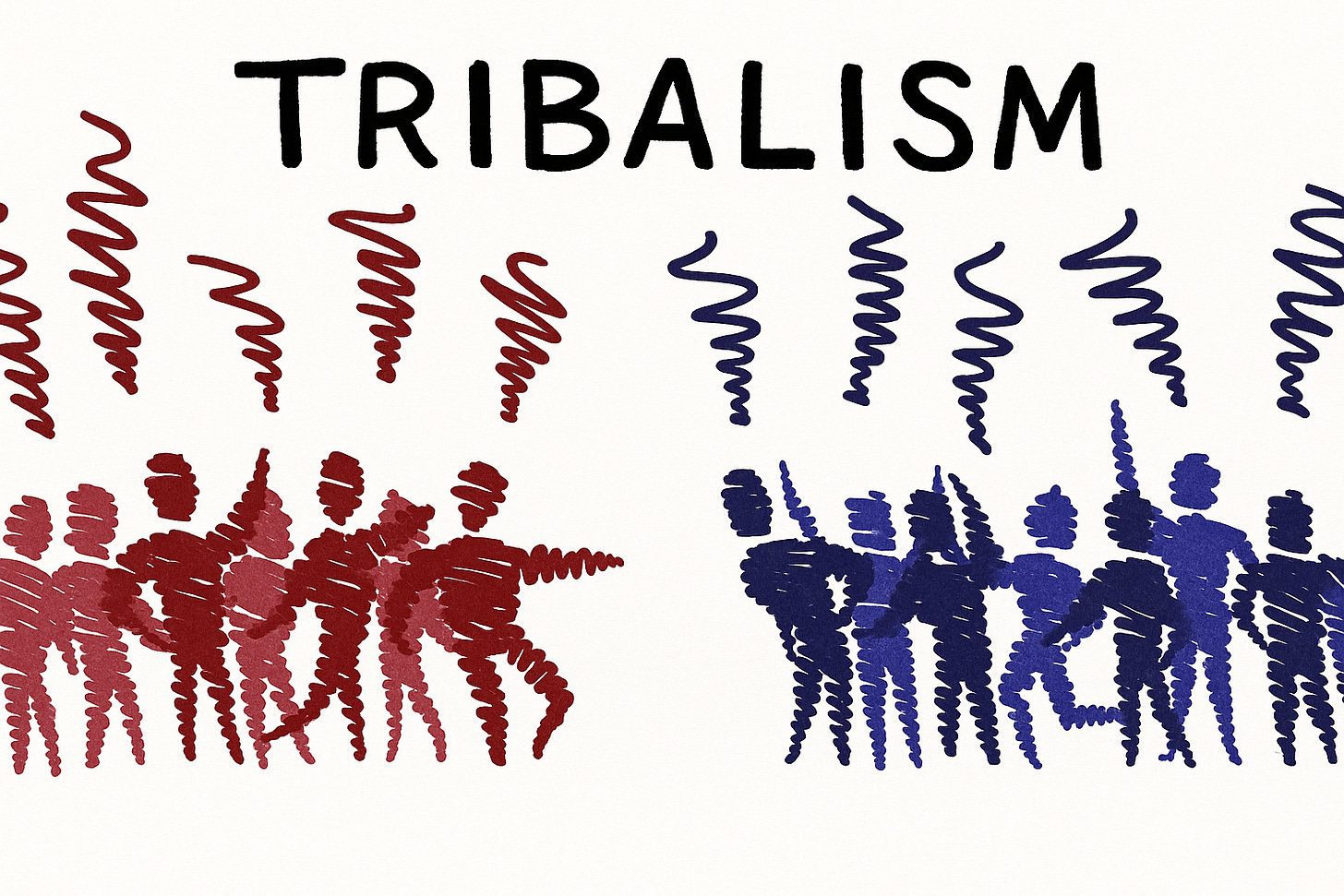Why Tribalism Is Such a Problem
Tribalism is one of humanity’s oldest instincts, and one of its most dangerous when left unchecked.
It was once useful for survival, helping small groups protect each other in a harsh world. But in the modern age, it has become a psychological trap that limits growth, divides societies, and distorts truth.
At its core, tribalism locks people into rigid belief systems that serve the group’s interests rather than truth or optimal outcomes.
It prioritises identity over accuracy. Loyalty to the tribe becomes more important than being right, which leads to ideological possession and social division.
Tribalism also enables pork-barrel thinking, where resources and advantages are directed toward one’s own group, often at the expense of fairness and the greater good.
It stifles individuation and differentiation, preventing people from forming their own independent views. Conformity is rewarded, while critical thought is punished.
Within tribes, competence is often less valued than agreement. Members gain status by saying the “right” things rather than contributing useful ideas.
This kind of conformity fuels moral blindness, allowing harmful actions to be justified as long as they benefit the tribe.
Tribalism discourages dialogue. Disagreement is treated as betrayal instead of an opportunity for learning.
It also exploits two of the most powerful human drives: fear and belonging. Leaders can manipulate these instincts, using exclusion and punishment to enforce obedience.
Once a tribe takes hold of a worldview, it builds echo chambers that filter information to reinforce that perspective.
This makes self-correction nearly impossible.
Over time, empathy begins to erode, as outsiders are dehumanised and treated as less deserving of care or compassion.
The effects of tribalism reach beyond individual psychology. It blocks collective progress because groups fight for dominance rather than truth.
It replaces curiosity with certainty. People stop asking questions once their tribe has supplied a comfortable answer.
It also breeds hypocrisy, where identical actions are praised or condemned depending on who performs them.
In the end, tribalism fragments civilisation. Humanity becomes divided into competing factions, each obsessed with its own narrative and sense of righteousness.
The potential for cooperation and shared understanding disappears, replaced by endless competition for power and validation.
If humanity is to grow beyond its primitive programming, we must recognise tribalism for what it is: an outdated survival strategy that no longer serves us.
Progress requires individuals who can think beyond group identity, question their own biases, and choose truth over allegiance. Only then can we move from division toward genuine unity.



